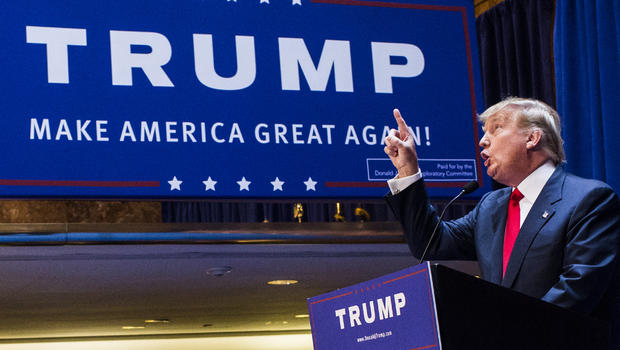
In the newest expression of his commitment to expanding school “choice,” President Trump is making his first official visit to a school Friday – to a Catholic school in Florida.
Trump will stop at St. Andrew Catholic School in Orlando, where several hundred students attend with help from a tax credit scholarship program that Education Secretary Betsy DeVos has praised in her declarations about the value of school choice.
Trump himself referred to the program in his address Tuesday night to Congress when he spoke glowingly about one of his guests, Denisha Merriweather, who attended a private school with help from the Florida Tax Credit Scholarships program for students from low-income families. She is now in graduate school.
Trump has repeatedly expressed his interest in expanding school choice, which includes voucher and tax credit programs that use public dollars to fund tuition and other educational expenses at private and religious schools. Opponents say these programs violate the constitutional separation between church and state and harm traditional public education systems where the vast majority of America’s schoolchildren are enrolled. But they have grown substantially in the past decade, and DeVos has been a leader in the choice movement for decades.
At his address Tuesday night, Trump asked Congress to pass an education bill that “funds school choice for disadvantaged youth, including millions of African American and Latino children.” He didn’t say how much he wanted them to spend, but in the past he has mentioned $20 billion.
A White House aide said Trump was going to St. Andrew for a “listening session on choice” but offered no other details. Of the approximately 350 students at St. Andrew, nearly 300 attend with help from the Florida Tax Credit Scholarships program. (Florida has a second education tax credit program, the Gardiner Scholarship for students with special needs.)
One of the ways that the White House and Congress are considering expanding school choice is with a federally funded tax credit that could be part of a promised overhaul of the federal tax code. In 2013, two Republican senators, including Marco Rubio of Florida, introduced a bill that sought to create one, and DeVos supported that bill as president of the education advocacy group American Federation for Children. The bill was not approved in either chamber of Congress. If it had and been sent to the White House, then-President Obama would have vetoed it.
According to the Florida Department of Education, the cap for the Florida Tax Credit Scholarships in the current fiscal year is $559,082,031 and “will increase to $698,852,539 for the 2017-2018 state fiscal year.” Step Up For Students, a nonprofit organization that helps the state administer the tax credit programs, says it awarded 97,926 Florida Tax Credit Scholarships, worth up to $5,886 each, for the 2016-2017 school year. Tuition at St. Andrew is $5,990 for pre-K through eighth grade, excluding fees.
Some 38 percent of all private school students in the United States were enrolled in Catholic schools in 2013-2014, according to the U.S. National Center for Education Statistics, based on the latest available data. (About 10 percent of all American schoolchildren go to private schools, the NCES says.)
The administration’s education priorities were on display recently when Trump and DeVos welcomed a group of 10 teachers and parents to the White House. The list of participants revealed their priorities: two invitees were from traditional public schools, one was from a public school that specializes in special education, three came from private schools, two were home-schoolers, one was from a charter school and one was from a dropout-prevention program. Considering that traditional public schools educate more than 80 percent of U.S. schoolchildren, the representation was unbalanced.
Public education advocates have expressed concern that the administration is focused on expanding choice alternatives at the expense of the traditional public education system, and they say they believe that Trump and Devos want to privatize public education. DeVos, in a 2015 speech, called public schools “a dead end,” and she and her family have donated millions of dollars to religious schools and causes.
In February, she made her first school visit as education secretary to a D.C. public school, where protesters blocked her way through a side door and where she angered educators by saying later that teachers she saw at Jefferson Academy appeared to be in “receive mode,” “waiting to be told what they have to do.”
(c) 2017, The Washington Post · Valerie Strauss

